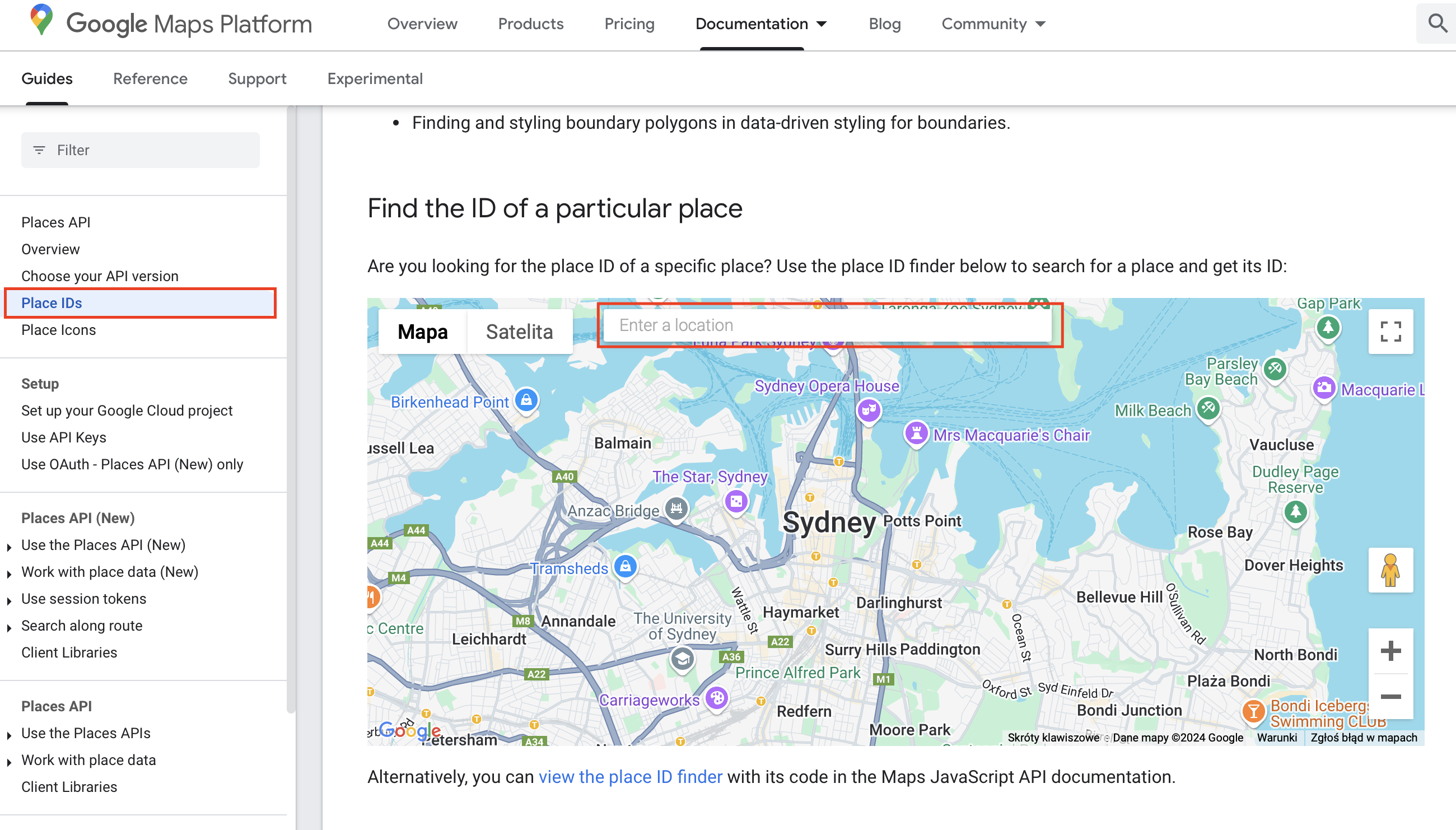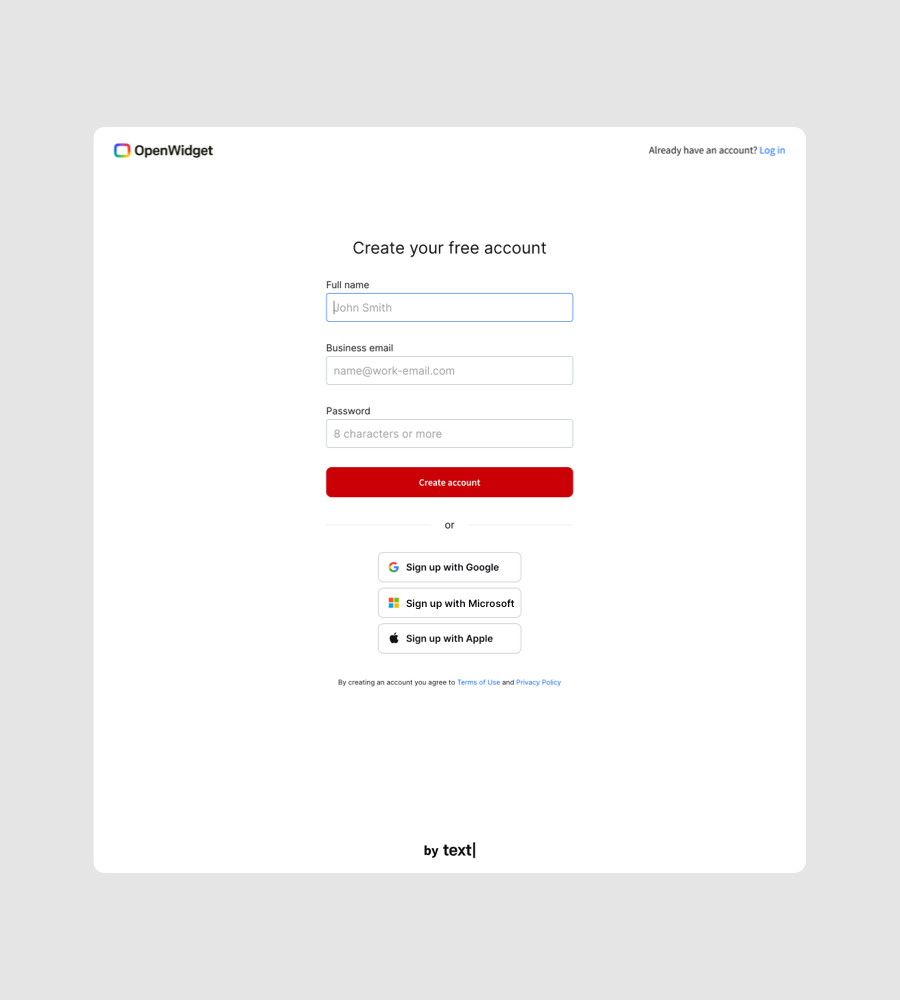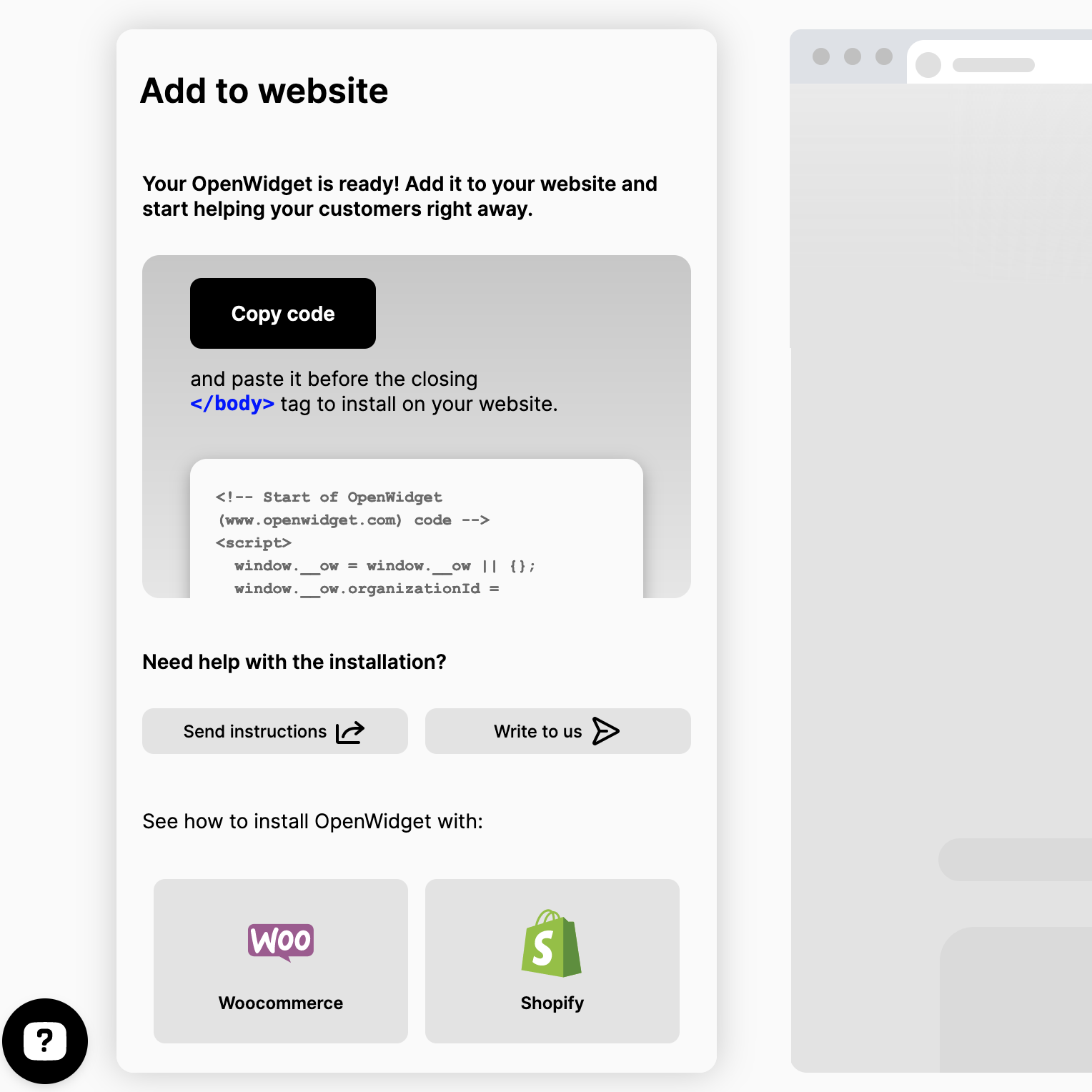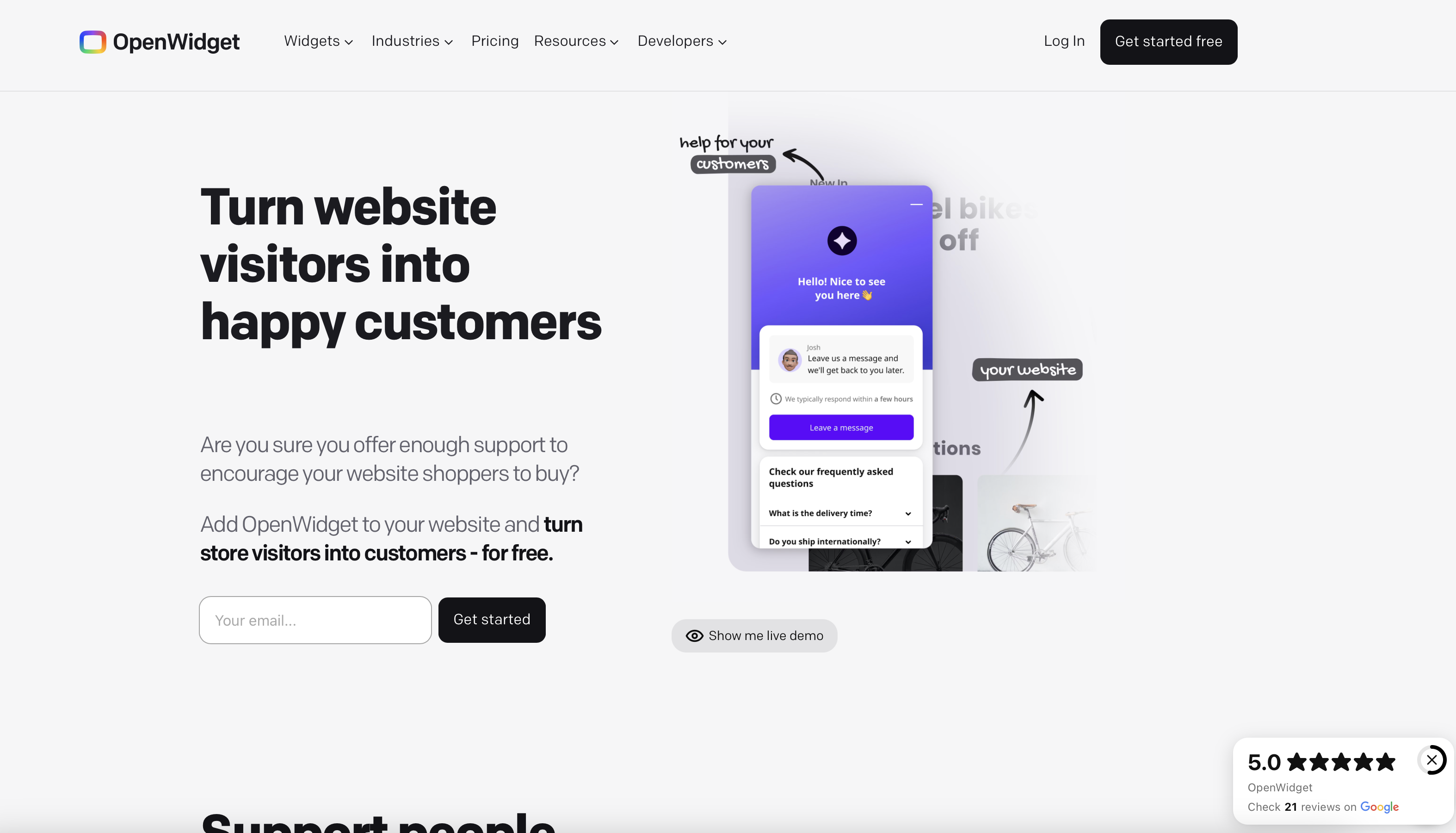Unlock the Power of Google Reviews for Doctors

More than ever, patients are turning to platforms like Google in search of doctor review sites to decide which doctor to trust. In fact, studies show that 77% of patients use online reviews as a first step in selecting a healthcare provider.
Google reviews, in particular, carry significant weight due to the platform's ubiquity and integration with local search results. Unlike any popular business review site, Google reviews directly influence a doctor's visibility in local search rankings, which can lead to more new patients.
Why is that? Google users perceive online reviews as more trustworthy because of Google's strict guidelines and moderation policies, making patient reviews a vital part of any medical practice's online visibility.
For health professionals, managing online patient reviews isn't just about reputation — it's about patient acquisition and retention. In this context, authentic Google reviews are powerful tools that shape patient perceptions and drive healthcare decisions.
Why Google reviews matter for doctors
Google reviews have transformed how patients find and evaluate healthcare providers. In the field of healthcare services, where trust and reputation are crucial, these reviews are especially important.
Let's explore how Google reviews specifically impact doctors and medical practices.
Trust and credibility
For any healthcare provider, trust is the foundation of patient relationships. Google reviews help build this trust by offering transparent, real-world experiences from other patients.
A doctor with more patient reviews appears more credible, reinforcing a sense of reliability and competence. Studies show that 84% of patients trust online reviews as much as personal recommendations, with Google often being the first platform they check.
Glowing reviews validate the quality of care and reflect the professionalism of the entire medical practice, from the front desk staff to medical procedures. In contrast, negative reviews can deter potential patients and damage a doctor's reputation if not managed properly.
Google reviews drive local SEO
One of the most powerful aspects of Google reviews is their direct influence on local search rankings. When patients search for "doctors near me" or "best cardiologist in [city]," Google’s algorithm factors in the volume, quality, and recency of reviews to rank results. Medical practices with a higher number of positive Google reviews tend to rank higher in search results, making them more visible to prospective patients.
This means Google reviews impact reputation and affect whether a practice is discoverable by new patients. The more reviews a doctor has, the more likely they are to appear in Google's coveted "Local 3-Pack," which features the top three local businesses for a given search.
Patient acquisition and retention
Doctors who actively manage their Google reviews can gain a competitive edge in attracting new patients. Good reviews provide social proof, encouraging potential patients to trust in the doctor’s skills before even setting foot in the clinic. On the flip side, how a doctor responds to negative feedback can also be telling. A thoughtful, empathetic response to a critical review can show professionalism, concern for patient welfare, and a willingness to improve.
Moreover, doctor reviews can influence patient retention. When patients see that a practice values feedback and actively engages with reviewers, they are more likely to remain loyal to that practice. Engaged practices build stronger patient relationships, resulting in long-term satisfaction.
Reviews as a reflection of patient care
In healthcare, every patient interaction counts, and Google reviews often highlight key aspects of a patient's experience — from the friendliness of staff to the effectiveness of treatments. Patients pay attention to overall ratings and specific details within the reviews. This feedback is a goldmine for doctors, allowing them to identify areas for improvement or opportunities to reinforce what they are already doing well.
For instance, if multiple reviews mention long waiting times, this signals an operational issue that might need attention. If patients consistently praise a particular staff member, it can boost team morale and reinforce positive behaviors. Essentially, Google reviews provide doctors with direct insights into their patients' perspectives, helping them enhance care quality and improve operational efficiency.
Managing online reputation
Managing Google reviews for doctors is an integral part of overall reputation management. By actively monitoring and responding to reviews, doctors can ensure they maintain control over their online image. Medical professionals who neglect their online presence risk losing patients to competitors with more Google reviews.
Setting up and managing Google reviews
For doctors and medical practices, managing Google reviews begins with setting up a Google Business Profile and proactively seeking reviews from patients.
Here's a step-by-step guide to getting started and best practices for maintaining an active and professional presence on Google.
Setting up a Google Business Profile
A well-optimized Google Business Profile (formerly known as Google My Business) is the foundation of managing your Google reviews.
Here's how to set it up:
- If your practice is not already listed on Google, you can create a profile by visiting Google Business Profile. If it already exists but hasn’t been claimed, you will need to verify that you are the owner.
- Ensure that all your business details are accurate and up to date. This includes your practice’s name, address, contact information, office hours, and services offered. Keeping this information current helps patients find your practice easily.
- Add professional photos of your practice, waiting area, and team members to make your listing more appealing. Patients often respond positively to visual cues of cleanliness, professionalism, and a welcoming environment.
Best practices for requesting Google reviews
Once your profile is set up, the next step is to actively seek reviews from your patients.
Patients are more likely to leave a review when their experience is fresh. Right after a positive visit, you can request feedback either in person or via a follow-up email or text message. Practices can utilize review generation tools like ResponseScribe or Podium to automate these requests.
Simplify the process by providing patients with a direct link to your Google review page. This can be sent via email, text, or displayed on cards at the reception desk. You can create a direct review link using Google’s Place ID generator, which makes it easy for patients to find your profile.

Automated systems can send personalized review requests to patients post-appointment. These messages should be friendly and patient-focused, reminding them how valuable their feedback is for improving the practice.
HIPAA considerations when requesting and responding to reviews
Doctors must be especially cautious when responding to patient reviews to ensure compliance with Health Insurance Portability and Accountability Act (HIPAA).
Responses should be professional and courteous without referencing any patient’s condition, visit details, or medical records. For example, instead of saying, "We're glad we could help with your knee surgery," a compliant response would be, "Thank you for your feedback. We appreciate your kind words about our practice."
If a patient leaves a negative review, it's essential to respond politely and suggest moving the conversation offline. Invite the patient to contact your office directly via phone or email to resolve the issue while maintaining privacy.
Tools for automating and managing reviews
Manually managing reviews can be time-consuming for busy medical practices. Fortunately, several reputation management tools are designed to help doctors streamline this process.
ResponseScribe offers automated review requests via email or text, monitors reviews across multiple platforms, and generates personalized responses using AI or human writers. It’s designed specifically for healthcare providers and ensures all responses are HIPAA-compliant.
Podium allows medical practices to send automated review requests through SMS and monitor reviews on various platforms, including Google. It also features an AI tool to help doctors craft responses more efficiently.
Birdeye is another highly-rated platform for managing reviews that integrates with Google’s API to help practices monitor, request, and respond to reviews seamlessly. It also includes customer sentiment analysis, helping practices identify patterns in patient feedback.
Finally, you can use our own Google Reviews Widget to display Google reviews of your medical practice to build a strong online presence. The widget is completely free and takes five minutes to install, so why not do it right away, before reading any further?

First, sign up for a free OpenWidget account and go through the onboarding where you can configure your OpenWidget.





Ongoing review management
Once you have a system in place for requesting reviews, it’s essential to maintain an active presence by regularly checking and responding to patient feedback.
Set up alerts or use a management tool to be notified whenever a new review is posted. Responding quickly to both positive and negative reviews demonstrates that you truly value patient input and are dedicated to continuously improving the quality of care.
Highlight your commitment to continuing excellent service, always remain calm, apologize if necessary, and offer to discuss the issue privately.
Best practices for responding to Google reviews
Responding to Google reviews is just as important as receiving them. For doctors, a well-crafted response can either strengthen trust with existing patients or show potential patients how seriously you take feedback.
Let’s explore some best practices for responding to both positive and negative reviews while maintaining professionalism and compliance with healthcare regulations like HIPAA.
Responding to positive reviews
Positive reviews are opportunities to reinforce patient trust and highlight your practice’s commitment to exceptional care.
Always start by thanking the reviewer for taking the time to share their positive experience. Showing appreciation helps strengthen the relationship and fosters patient loyalty. Example: “Thank you so much for your kind words, [Patient Name]! We’re thrilled to hear about your positive experience at [Practice Name].”
Patients appreciate when responses don’t feel like generic templates. Personalize your response by referring to specific elements mentioned in the review (without violating HIPAA). If the patient mentioned your attentive staff or a short wait time, acknowledge it.
End the response by offering continued support, reminding the patient they can reach out if they have further needs or questions. This can be as simple as: “If there’s anything else we can do for you, don’t hesitate to reach out. We look forward to seeing you at your next appointment.”
Responding to negative reviews
Negative reviews require more delicate handling. The goal is to address the issue professionally, protect your reputation, and show that patient feedback is valued.
It’s natural to feel defensive when faced with criticism, but a calm and professional tone is key to maintaining your credibility. Acknowledge the reviewer’s concern without being dismissive or argumentative.
Expressing empathy is crucial, but you don’t want to admit fault publicly, especially since this can have legal or reputational consequences. A simple, neutral apology such as, “We’re sorry to hear you didn’t have a positive experience,” can go a long way.
Due to HIPAA regulations, avoid discussing any patient-specific details publicly. Instead, invite the reviewer to contact you directly to discuss their concerns further. Example: “We’d like to learn more about your experience and how we can assist you. Please contact our office at [phone number] so we can address this privately.”
Patients can often tell if responses are automated or overly generic. Tailor your response to the concerns raised in the review, even if it’s simply acknowledging their frustration. Avoid canned responses that seem impersonal.
Responding to mixed reviews
Sometimes patients leave mixed reviews, with both positive and negative elements.
In these cases, start by thanking the reviewer for any positive feedback they left. Acknowledging the good shows that you value all aspects of their experience. Then, turn your attention to addressing the areas of concern. Again, keep this general and avoid revealing any patient-specific details. Invite them to contact you directly to resolve any lingering issues.
Responding quickly and consistently
Timeliness matters when responding to reviews. Whether the feedback is positive or negative, a quick response shows that your practice is attentive and values patient input.
Use tools like Google My Business notifications or reputation management software (like, Podium or ResponseScribe, as mentioned above) to receive alerts whenever a new review is posted. This way, you can respond promptly.
Ensure that your tone, messaging, and frequency of responses are consistent across all reviews. A review management system can help with this by offering personalized templates while maintaining brand tone.
Stay HIPAA-compliant
Perhaps the most important consideration for doctors responding to reviews is staying within the bounds of HIPAA. Even well-meaning responses can unintentionally violate patient privacy.
Never mention or confirm any details about a patient’s visit, diagnosis, or treatment, even if the reviewer has shared this information. Acknowledge the feedback without confirming specifics.
If a review references medical care, it’s safer to respond generally, like: “Thank you for sharing your thoughts. We take patient feedback seriously and would be happy to discuss your concerns further in a private setting.”
Challenges and legal considerations in managing Google reviews for doctors
While managing Google reviews offers numerous benefits, it also presents unique challenges and legal considerations, particularly for healthcare professionals who must comply with strict regulations like HIPAA.
HIPAA compliance
One of the most critical concerns for doctors responding to reviews is staying within the bounds of HIPAA. This law prohibits healthcare providers from sharing any protected health information (PHI), including details about a patient’s medical history, diagnosis, or treatment, even if the patient has already disclosed these details in their review. Responding inappropriately can result in hefty fines and damage a doctor’s reputation.
Here’s how to navigate HIPAA when responding to reviews:
- Even if a patient mentions their name or treatment in a review, you should not acknowledge their identity or provide further details about their care. Stick to general, professional responses.
- Avoid discussing any specific medical condition, diagnosis, or treatment. Instead, focus on providing a professional response that thanks the reviewer for their feedback and invites them to contact your office privately.
- Doctors should encourage dissatisfied patients to reach out through private channels to avoid inadvertently disclosing sensitive information. Phrases like “We’d love to discuss your experience further, please contact us at [phone number]” help maintain privacy.
Handling misleading or fake reviews
Doctors, like other professionals, can be targets of misleading or fake reviews, which can negatively impact their practice's reputation. These reviews might come from disgruntled individuals, competitors, or even bots. Fortunately, there are steps to address this.
Google allows businesses to flag reviews that violate their content guidelines. Reviews that contain false information, offensive language, or violate Google's review policies can be reported through Google Business Profile. While not guaranteed, reporting may result in the removal of the review.
Even when a review appears fake, it's important to maintain a professional tone in your response. Acknowledge the feedback without validating the false information and suggest taking the conversation offline. For instance, you could say: “We’re unable to find a record of your visit. Please reach out to our office at [phone number] so we can address any concerns directly.”
Legal implications of deleting negative reviews
While it’s tempting to try to remove negative reviews, doctors should avoid being overly aggressive in this area. Review platforms like Google have strict policies regarding review removal. Attempting to manipulate reviews by removing all negative feedback could backfire by diminishing trust with both patients and review platforms.
Removing every negative review can appear dishonest and may violate Google’s policies if done improperly. It's better to respond to negative feedback thoughtfully than seek removal unless the review violates content guidelines.
In extreme cases where a review is defamatory (false and damaging), doctors may consider legal action. However, such measures are usually reserved for the most serious cases, as legal proceedings can be time-consuming and costly. It’s generally advisable to explore non-litigious solutions first, such as direct communication with the reviewer or requesting that Google intervene.
The risk of review gating
Another legal pitfall that healthcare practices must avoid is review gating, a practice where businesses filter or direct patients to leave reviews only if they are likely to be positive. For example, asking only satisfied patients to leave a review while discouraging others can lead to violations of Google’s review policies.
Google prohibits businesses from selectively asking for reviews from only satisfied customers. All patients should be encouraged to leave feedback, whether their experience was positive or negative. Violating this policy could result in penalties, including removing your Google Business Profile.
Responding to negative reviews without escalation
One of the most challenging aspects of managing reviews is addressing negative feedback without escalating the situation. Negative reviews can be emotional, especially if the patient feels wronged. The key is to remain calm, empathetic, and solution-oriented in your response.
A defensive or argumentative response can exacerbate the situation, potentially causing more harm to the doctor’s reputation. Acknowledging the reviewer’s feelings and apologizing for their negative experience without admitting fault is essential. For example, “We’re sorry that your experience did not meet expectations. We would appreciate the opportunity to make things right. Please contact us directly at [phone number].”
Demonstrating that you’re willing to address the issue can soften the impact of a negative review. Offering a phone number or email where the patient can discuss their concerns in private shows professionalism and a desire to resolve the situation.
The challenge of volume
As a medical practice grows, so does the volume of patient reviews. For busy doctors, managing a large number of reviews can become overwhelming. This is where automated systems come in handy.
Tools like ResponseScribe, Birdeye, or Podium can help automate the review management process by alerting you to new reviews, allowing you to quickly respond, and even providing pre-written templates for HIPAA-compliant responses.
Some practices delegate review management to trained staff or hire reputation management firms that specialize in the healthcare industry. This ensures that reviews are handled professionally and promptly while adhering to HIPAA and other legal standards.
Displaying Google reviews for doctors on a website

Managing Google reviews is essential to maintaining and growing a doctor’s online reputation. By engaging with potential patients through thoughtful and professional responses, healthcare providers can build trust, attract new patients, and ensure continued success.
However, this process must be handled carefully, especially regarding legal and ethical considerations like HIPAA compliance and Google’s policies on review practices.
If you want to take Google reviews a step further, consider adding them to your website. Using online reviews can help you exhibit your online reputation to new visitors, and even get more reviews from people who already used your practice.
This approach strengthens social proof, giving potential clients confidence that choosing your business is the right decision. By integrating reviews seamlessly, you're reinforcing your credibility while ensuring an uninterrupted user experience.
Start now by creating your free OpenWidget account.
